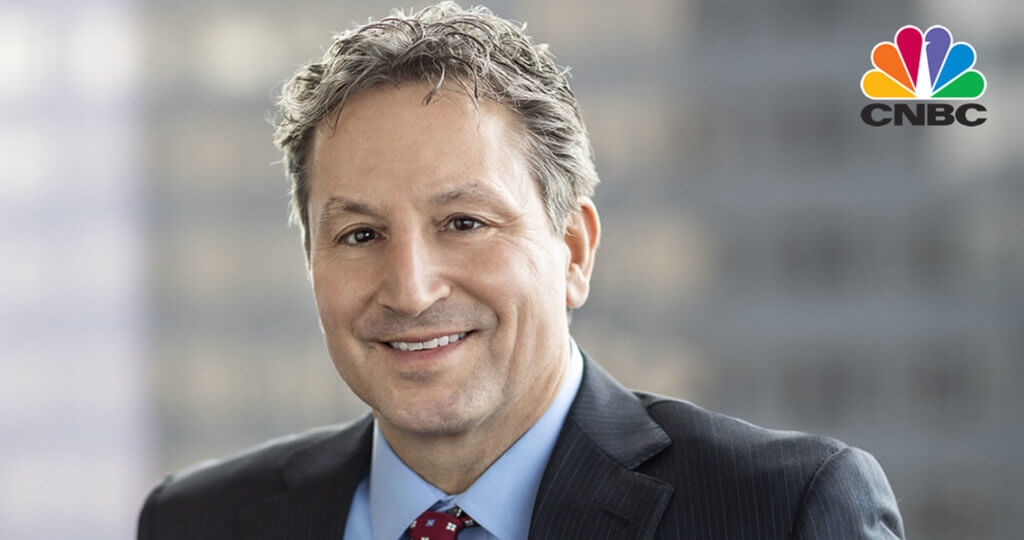Portfolio Manager David Herro shares why there are pockets of value to be found in Europe during a Bloomberg Radio interview.
The holdings mentioned comprise the following percentages of total net assets as of 12/31/2023:
| Security | Oakmark International Fund |
|---|---|
| Allianz | 2.1% |
| BMW | 2.2% |
| Mercedes-Benz Group | 2.8% |
| SAP | 1.1% |
| Siemens | 1.7% |
The holdings mentioned comprise the following percentages of total net assets as of 02/29/2024:
| Security | Oakmark Global Fund | Oakmark Global Select Fund |
|---|---|---|
| Allianz | 2.4% | 0% |
| BMW | 0% | 0% |
| Mercedes-Benz Group | 4.3% | 5.1% |
| SAP | 1.1% | 0% |
| Siemens | 0% | 0% |
Portfolio holdings are not intended as recommendations of individual stocks and are subject to change. The Funds disclaim any obligation to advise shareholders of such changes. Information about portfolio holdings does not represent a recommendation or an endorsement to Fund shareholders or other members of the public to buy or sell any security contained in the Funds’ portfolios. Portfolio holdings are current to the date listed but are subject to change any time. There are no assurances that the securities will remain in the Funds’ portfolios after the date listed or that the securities that were previously sold may not be repurchased.
Access the full list of holdings for the Oakmark International Fund here.
Access the full list of holdings for the Oakmark Global Fund here.
Access the full list of holdings for the Oakmark Global Select Fund here.
The information, data, analyses, and opinions presented herein (including current investment themes, the portfolio managers’ research and investment process, and portfolio characteristics) are for informational purposes only and represent the investments and views of the portfolio managers and Harris Associates L.P. as of the date written and are subject to change and may change based on market and other conditions and without notice. This content is not a recommendation of or an offer to buy or sell a security and is not warranted to be correct, complete or accurate.
Certain comments herein are based on current expectations and are considered “forward-looking statements”. These forward looking statements reflect assumptions and analyses made by the portfolio managers and Harris Associates L.P. based on their experience and perception of historical trends, current conditions, expected future developments, and other factors they believe are relevant. Actual future results are subject to a number of investment and other risks and may prove to be different from expectations. Readers are cautioned not to place undue reliance on the forward-looking statements.
PIGS refers to Portugal, Italy, Greece, Spain.
The price to earnings ratio (“P/E”) compares a company’s current share price to its per-share earnings. It may also be known as the “price multiple” or “earnings multiple”, and gives a general indication of how expensive or cheap a stock is. Investors should not base investment decisions on any single attribute or characteristic data point.
The Price to Book Ratio is a stock’s capitalization divided by its book value.
Book Value refers to a company’s common stock equity as it appears on a balance sheet, equal to total assets minus liabilities, preferred stock, and intangible assets such as goodwill.
Dividend Yield is a stock’s expected annual dividend divided by the stock’s price at the indicated date, expressed as a percentage.
ROE refers to return on equity and measures profitability as a percentage of the money shareholders have invested.
DAX index (Deutscher Aktienindex) consists of the 40 major German blue-chip companies trading on the Frankfurt Stock Exchange. It is a total return index. This index is unmanaged and investors cannot invest directly in this index.
The MSCI EAFE Index (Net) is designed to represent the performance of large and mid-cap securities across 21 Developed Markets countries in Europe, Australasia and the Far East, excluding the U.S. and Canada. The Index covers approximately 85% of the free float-adjusted market capitalization in each of the 21 countries. This benchmark calculates reinvested dividends net of withholding taxes. This index is unmanaged and investors cannot invest directly in this index. On occasion, Harris may determine, based on its analysis of a particular multi-national issuer, that a country classification different from MSCI best reflects the issuer’s country of investment risk. In these instances, reports with country weights and performance attribution will differ from reports using MSCI classifications. Harris uses its own country classifications in its reporting processes, and these classifications are reflected in the included materials.
The Nikkei Stock Average (Nikkei 225) is a price-weighted average of 225 Japanese companies listed in the First Section of the Tokyo Stock Exchange. Constituents are selected based on liquidity and industry representation. This index is unmanaged and investors cannot invest directly in this index.
The Oakmark International Fund’s portfolio tends to be invested in a relatively small number of stocks. As a result, the appreciation or depreciation of any one security held by the Fund will have a greater impact on the Fund’s net asset value than it would if the Fund invested in a larger number of securities. Although that strategy has the potential to generate attractive returns over time, it also increases the Fund’s volatility.
The Oakmark Global Fund’s portfolio tends to be invested in a relatively small number of stocks. As a result, the appreciation or depreciation of any one security held by the Fund will have a greater impact on the Fund’s net asset value than it would if the Fund invested in a larger number of securities. Although that strategy has the potential to generate attractive returns over time, it also increases the Fund’s volatility.
Because the Oakmark Global Select Fund is non-diversified, the performance of each holding will have a greater impact on the Fund’s total return, and may make the Fund’s returns more volatile than a more diversified fund.
Investing in foreign securities presents risks that in some ways may be greater than U.S. investments. Those risks include: currency fluctuation; different regulation, accounting standards, trading practices and levels of available information; generally higher transaction costs; and political risks.
Investing in value stocks presents the risk that value stocks may fall out of favor with investors and underperform growth stocks during given periods.






